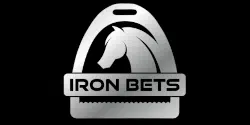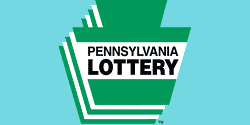Pennsylvania Gambling
Pennsylvania is a good place to be a gambler with nearly every conceivable form of gambling available both online and in person. Between its many casinos, authorized PA gambling sites, and even an online lottery, Pennsylvania has something for players of all persuasions.
Regulated forms of gambling available in Pennsylvania include:
- Casinos: Online and in-person
- Sports betting: Online sportsbooks and in-person sports betting
- Poker: Online and in-person
- Fantasy sports: Online and in-person
- Horse racing betting: Online and in-person
- Lottery: Online and in-person
- Bingo: In-person and possibly online in the future
- Games of skill: Online and in-person
Legal Pennsylvania Gambling Sites


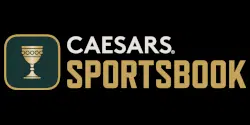

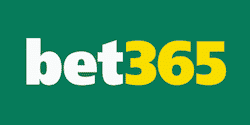





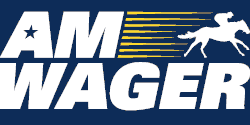

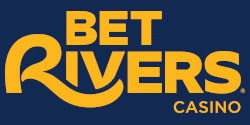
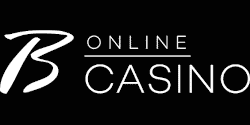

21+ and present in PA. T&Cs Apply. Gambling Problem? Call 1-800-GAMBLER.
Pennsylvania Online Gambling
Pennsylvania passed a wide-ranging gambling reform bill in 2017 to legalize online casinos, sports betting, poker and lottery games. The 2017 bill also established a regulatory framework for daily fantasy sports, authorized the construction of up to 10 satellite casinos and approved the installation of up to 40,000 video gaming terminals across the state.
News reports call it the biggest gambling expansion since Pennsylvania legalized land-based casinos in 2004, and we tend to agree. The 2017 bill has had and will continue to have profound effects on the gambling landscape in Pennsylvania.
The Pennsylvania Gaming Control Board is now drawing up regulations and reviewing licensing requests, but numerous existing casinos have already submitted their applications, and some of those have been approved.
The first Pennsylvania online casinos launched in July 2019.
Pennsylvania Online Casinos
Pennsylvania gambling law allows each of the state’s land-based casinos to apply for licenses to offer slot machines, table games, poker, and sports betting online. Each of these gambling licenses may be applied for individually, which means not all land-based casinos are guaranteed to offer the full range of games.
All of the following online casinos are fully licensed by the Pennsylvania Gaming Control Board (PGCB).
- BetRivers: Sports betting, slots, and table games
- Borgata Casino: online slots and table games
- Caesars Casino: Slots and table games
- Unibet: Slots and table games
- Parx Casino: Sports betting, slots and table games
- PokerStars: Slots, table games, and poker
- Hollywood Casino Online: Slots and table games
- DraftKings: Sports betting, slots, and table games
- BetMGM: Sports betting, slots, and table games
- BetAmerica: Sports betting, slots, and table games
- PlayLive! Casino: Slots and table games
- SugarHouse Casino: Sports betting, slots, and table games
- FanDuel: Sports betting, slots, and table games
- Wind Creek Casino: Sports betting, slots, and table games
- Golden Nugget: Slots and table games (launch pending)
Sharp-eyed readers may notice two of the above names do not belong. MGM Resorts International and Golden Nugget do not have a land-based presence in Pennsylvania but have applied for online gambling licenses anyways.
The online gambling law approved in 2017 makes this possible because it allows the PGCB to issue up to 39 online gaming licenses in total. This corresponds to each of Pennsylvania’s 13 casinos applying for 3 online gambling licenses: one for slots, one for table games, and one for poker.
Any licenses that went unclaimed by local casinos during the initial licensing phase may be awarded to other “qualified gaming entities” from out of state. Thus, MGM and Golden Nugget were able to submit applications despite not having a brick-and-mortar presence in the state.
Brick and Mortar PA Casinos in PA
Pennsylvania legalized land-based casinos through a gambling reform bill passed in 2004. The bill created three categories of casinos: race tracks with gambling games, standalone casinos, and resort-style casinos.
In 2017, a second gambling expansion bill cleared the way for additional in-person gambling options by authorizing up to 10 satellite casinos and allowing qualifying truck stops to install up to five video gaming terminals (VGTs). Satellite casinos and VGTs are still a work in progress, but we will update this page as soon as the first locations go live.
Land-Based Casinos in Pennsylvania
Today, there are twelve full-fledged casinos and one more under construction in Pennsylvania:
| Harrah’s Philadelphia | Parx Casino |
| Mount Airy Casino Resort | Wind Creek Bethlehem |
| Live! Casino | Hollywood Casino Penn National |
| Valley Forge Casino Resort | Rivers Casino Pittsburgh |
| Rivers Casino Philadelphia | Presque Isle Downs & Casino |
| Mohegan Sun Pennsylvania | Lady Luck Casino Nemacolin |
| Hollywood Meadows Casino |
Satellite Casinos in Pennsylvania
The 2017 Pennsylvania gambling expansion bill has cleared the way for up to 10 satellite casinos, also sometimes referred to as mini-casinos. Licenses to construct satellite casinos are awarded through an auction process managed by the Pennsylvania Gaming Control Board.
Once approved, mini-casinos may offer:
- Up to 750 slot machines
- Up to 30 table games after paying an additional $2.5 million licensing fee
A handful of satellite casino licenses have been awarded to local operators, but construction has not yet begun on any. According to local media reports, the first mini-casinos may go live by the end of 2020.
Video Gaming Terminals (VGTs) in Pennsylvania
Qualifying truck stops are allowed to install up to five video gaming terminals (VGTs) under the 2017 gambling expansion bill. Truck stops must sell an average of 50,000 gallons of diesel every month and have at least 20 commercial parking spaces to qualify.
VGTs installed at truck stops may award a maximum prize of $1,000. The maximum wager per game is not allowed to exceed $5.
Additionally, counties that host a land-based casino may opt-out. At the time the bill authorizing VGTs was passed, PA lawmakers estimated roughly 150 truck stops would meet these qualifications and generate roughly $14 million in total gross revenue across the state.
Pennsylvania Airport Gambling
If you find yourself waiting for an overdue flight at an airport terminal somewhere in Pennsylvania one day, you might be able to get in a few hands of blackjack to pass the time now that airport gambling has been legalized.
Under the 2017 gambling expansion act, publicly-owned commercial airports are allowed to offer online gambling through “multi-use computing devices” such as iPads and other similar devices installed at the airport.
Airports that wish to offer this service are permitted to partner with any of the state’s existing casinos that also has an interactive gaming license. Once partnered, airports can set up tablets and other devices in lounges and other strategic locations to offer virtual slots and table games.
Players will be allowed to set up an account right there in the app or log in to an existing PA online gambling account. There, players can make deposits and withdrawals, play games, and also take advantage of other features offered by the tablets such as checking flight statuses and doing a little online shopping.
The PGCB website explains who is eligible to play:
- Individuals 21 or older who:
- Have already cleared security checkpoints
- Have a valid airline boarding pass
Airports are not required to offer online gambling, but the following airports qualify to offer casino games if they wish:
| Altoona-Blair County Airport | Arnold Palmer Regional Airport | Bradford Regional Airport |
| Dubois Regional Airport | Erie International Airport | Harrisburg International Airport |
| John Murtha Johnstown-Cambria County Airport | Lancaster Airport | Lehigh Valley International Airport |
| Philadelphia International Airport | Pittsburgh International Airport | University Park Airport |
| Venango Regional Airport | Wiles-Barre / Scranton International Airport | Williamsport Regional Airport |
Pennsylvania Sports Betting
Pennsylvania legalized in-person, and mobile sports betting in 2017 and began accepting license applications in May 2018. Hollywood Casino at Penn National took the state’s first sports bet in November 2018, and several other retail sportsbooks have launched since then.
The first PA mobile sports betting sites launched in May 2019.
PA Online Sports Betting Sites and Apps
A single sports betting license allows a casino to offer in-person and online betting alike. This does not necessarily mean every casino with a sports betting license will launch a mobile app, but all will likely opt for that since mobile betting offers state-wide access with low overhead costs.
Each of the following casinos has applied for an in-person and online sports betting license. The chart below also shows which third-party service provider has been contracted to help each casino run its betting services. In all likelihood, these providers will also run each casino’s mobile betting operation.
| Land-Based Casino | Sports Betting Services Provider(s) | Website |
| Harrah’s Philadelphia | Scientific Games / Caesars Interactive | PA.CaesarsOnline.com |
| Parx Casino | GAN plc, Kambi Group plc and SBTech | PA.ParxCasino.com |
| Hollywood Casino | William Hill US and Barstool Sportsbook | BarstoolSportsbook.com |
| Valley Forge Casino | FanDuel | PA.Sportsbook.FanDuel.com |
| Rivers Casino Philadelphia | Rush Street Interactive and Kambi | PA.PlaySugarHouse.com |
| Presque Isle Downs | SBTech | PA.BetAmerica.com |
| Mohegan Sun Pocono | Kindred Group | PA.Unibet.com |
| Mount Airy Casino Resort | BetStars / The Stars Group | FOXBet.com |
| Rivers Casino | Rush Street Interactive and Kambi | PA.BetRivers.com |
| The Meadows | DraftKings | Sportsbook.DraftKings.com |
| Hollywood Casino Morgantown | BetMGM | PA.BetMGM.com |
| Wind Creek Bethlehem | Betfred | play.windcreekcasino.com |
Nine casinos have applied for sports betting and received approval from the PGCB to date. Eight of the nine are now operational and taking wagers today. You can see casinos, addresses, and hours of operation below.
Note: all hours are subject to change based on the sports programming schedule and for special events.
| William Hill Sports Book at Harrah’s Philadelphia | Parx Casino Sportsbook |
| The Sportsbook at Hollywood Casino | FanDuel Sportsbook at Valley Forge Casino |
| Rivers Casino Sportsbook | Rivers Casino Philadelphia Sportsbook |
| Presque Isle Downs Sportsbook | Mohegan Sun Sportsbook |
| South Philly Race & Sportsbook | Oaks Race & Sportsbook |
| Betfred Sportsbook at Wind Creek Bethlehem | FanDuel Sportsbook at Live! Casino |
Pennsylvania Poker
Pennsylvania is a large poker market with both live poker rooms and licensed PA poker sites. Between the state’s established poker rooms hosted at casinos and poker sites, Pennsylvania is a good place to be a player.
PA Online Poker Sites
The gambling expansion law passed in 2017 allows each of Pennsylvania’s casinos to apply for up to three gambling licenses: one for slots, another for table games, and another for poker. Seven casinos have applied for all three forms of online gaming while others have opted to pass on poker for now due to the intense efforts required to build a highly-trafficked poker site.
Just like in New Jersey, Pennsylvania’s casinos are allowed to partner with experienced online gaming providers to run their poker sites. This has opened the door for major players such as The Stars Group and 888 to enter PA.
The first PA poker sites launched in November 2019 and more will follow suit soon. Here’s what we know about each casino and its potential software provider:
| Land-Based License Holder | Online Poker Partner |
| Mount Airy Casino Resort | The Stars Group (PokerStars) |
| Valley Forge Casino | IGT and GAN |
| Harrah’s Philadelphia | Scientific Games and 888 |
| Parx Casino | Kambi and GAN |
| Hollywood Casino at Penn National | IGT |
| Wind Creek Bethlehem | To be determined |
| Rivers Casino Philadelphia (formerly SugarHouse) | Rush Street Interactive |
We should note that this is all subject to change once each casino actually takes its online poker room live. The PGCB does not release many details regarding each poker site’s plans and partnerships, so some of this is guesswork.
For example, we believe Harrah’s Philadelphia may end up launching online poker in partnership with highly-experienced poker operator 888/WSOP. Harrah’s parent company Caesars Entertainment already operates in partnership with 888 in New Jersey and other states, so it would make perfect sense for that partnership to extend into Pennsylvania as well. Additionally, 888 holds an interactive gaming manufacturer’s license in Pennsylvania.
Pennsylvania Poker Rooms
Ten Pennsylvania casinos operate in-person poker rooms with the biggest of those being Parx Casino in Bensalem. Harrah’s Philadelphia, Wind Creek Bethlehem, SugarHouse Casino and Rivers Casino also operate poker rooms with upwards of 30 tables.
PA casinos were not originally authorized to offer poker or table games through the legislation passed in 2004, but an amendment approved in 2010 finally cleared the way for poker. Now, players across the state have a variety of quality poker rooms to choose from.
| WSOP Poker Room at Harrah’s Philadelphia
777 Harrah’s Blvd | Parx Casino Poker Room
2999 Street Rd |
| The Poker Parlor at Mount Airy
312 Woodland Rd | Poker Room at Wind Creek Bethlehem
77 Wind Creek Blvd |
| Hollywood Casino Poker Room (closed)
777 Hollywood Blvd | Rivers Casino Pittsburgh Poker Room
777 Casino Dr |
| Rivers Casino Philadelphia Poker Room
1001 N Delaware Ave | Presque Isle Downs Poker Room (closed)
8199 Perry Highway |
| Mohegan Sun Poker Room
1280 Highway 315 | Meadows Poker Room
210 Racetrack Rd |
Pennsylvania Daily Fantasy Sports
Daily fantasy sports and traditional season-long leagues are legal and regulated in Pennsylvania. The 2017 gambling reform bill finally gave DFS sites such as FanDuel and DraftKings formal legal status, but both companies were active in Pennsylvania long prior to the passage of the law.
What has changed is DFS operators who offer paid games in Pennsylvania must now apply for a license and show adherence to basic consumer protection laws. Social season-long contests that do not keep generating a profit, that are free to play or that do not offer prizes do not have to be licensed.
Biggest DFS Sites in PA:
- DraftKings
- FanDuel
- Boom Fantasy
The PGCB keeps an updated list of fantasy sites that have applied for licenses, but some readers may find that page difficult to interpret. The best place to find active licensees is through the latest fantasy sports revenue reports that are regularly published on this page.
Pennsylvania Horse Racing Betting
Online, in-person, and off-track racing betting are all legal in Pennsylvania when conducted by approved operators. A horse racing reform bill passed in 2016 changed the way parimutuel wagering is managed by the state, but changes since then have been minimal to fans aside from it being a little cheaper to bet on horses online.
PA Lottery
Pennsylvania established a state lottery in 1971 and authorized the sale of online lottery games in 2017. Today, the Pennsylvania Lottery offers a wide range of games including entries to major drawings, instant win scratch cards, keno, fast-play games, and a type of virtual sports game called Xpress Sports.
Types of games offered by the PA Lottery include:
- Statewide Drawings: PA Lottery holds regular draw games exclusive to Pennsylvania. These include a variety of smaller daily games such as Pick 2, Pick 3, and others. The biggest of these is Match 6 Lotto which begins with a $500,000 jackpot that grows until someone wins.
- Multi-State Draw Games: Pennsylvania participates in the multi-state lottery association and gives players access to the largest jackpots in the country: Powerball, Mega Millions, and Cash 4 Life.
- Scratch-Offs: Instant win scratch-off games can be purchased in-person at any retailer and offer prizes that reach into the millions of dollars depending on the game. The lineup always changes, but the basic idea behind them all is to buy a ticket, scratch it off, and see if you’ve won.
- Fast Play: Fast Play games are played similarly to draw games except no drawing actually happens. Instead, the ticket is purchased with your numbers and the winning numbers printed right on the slip. You’ll instantly know if you’ve won.
- Keno: The PA Lottery hosts keno drawings every four minutes. For those who have never played, the game is simple. Pick anywhere from one to ten numbers out of a range of 1-80. The next keno drawing will pick twenty numbers at random from 1-80 and the more matches you get, the bigger your prize. Keno payouts top out at $100,000.
- Xpress Sports: Xpress Sports terminals put you in the middle of a fictional football game or auto race and have you predict the outcome for a shot at a payout. The more specific your prediction, the bigger the prize. Then, watch the action unfold to see if your prediction is good for a payout. Xpress Sports games run every five minutes.
Pennsylvania Online Lottery
PA iLottery launched in 2018 with a small collection of instant-win games that operate similarly to real-world scratch cards but in digital form. The 2017 gambling expansion bill gave the PA Lottery authorization to offer many different game types, but officials opted to start with a small collection of instant-win games with plans to introduce new games on a regular basis.
Scratch Cards
Pennsylvania online lottery games may resemble slots at a glance but function just like the types of scratch cards you would buy in the real world. After choosing an amount to play, you’ll “scratch” the digital card with your mouse or touchscreen to see if you’ve won.
Online Keno
Several months after launching with instant-win games only, PA iLottery expanded its offerings to include online keno. The online keno game works in the same basic manner as its real-world equivalent but with prizes reaching as high as $300,000 and no wait time between games.
You can see the games and try demo versions of each without signing up at:
- PAiLottery.com
Players must be at least 18 years old and located within state lines to play iLottery games for real money.
Bingo in Pennsylvania
In-person bingo is legal in Pennsylvania at locations run by non-profit organizations that have a license from the city where the games take place. There are about a dozen permanent bingo facilities spread throughout the state, but bingo licenses are inexpensive enough that individual bingo nights are also feasible.
Because bingo is licensed at the municipal level, there is no central listing of legal bingo games. You’ll have to check with your city, Facebook or Google Maps to find a bingo game near you. In most cases, you’ll find you’re not too far from a game.
What about online bingo?
Whether or not online bingo is authorized in Pennsylvania will depend on the Pennsylvania Gaming Control Board. If you recall, the gambling expansion law approved in 2017 allows land-based casinos to apply for three different types of licenses:
- Online slots
- Online table games
- Online peer-to-peer games
Online peer-to-peer games are often referred to as the “poker” license, but it is not limited strictly to poker. The license is actually for “peer-to-peer interactive” games, and the definition of that term is given as follows:
“An authorized interactive game which is nonbanking, in which a player competes against one or more players and in which the interactive gaming certificate holder collects a rake.”
None of the brick-and-mortar casinos that have applied for an interactive peer-to-peer license have mentioned any plans regarding bingo, but the wording of the law seems to leave that door open should the PGCB decide to authorize the game. A handful of New Jersey gambling sites offer online bingo, so it’s not out of the realm of possibility in Pennsylvania.
Skill Games for Money
Skill games can be found outside of casinos throughout Pennsylvania, including websites that allow players to compete against one another in popular video games with real money on the line. We can place PA skill games into three general categories:
- eSports played for money online
- Websites that offer simple but strategic games such as Scrabble and Bejeweled for real money
- Physical skill machines that are found in the real world
Real Money eSports
The rise of competitive gaming in recent years has spawned an entire industry of eSports competition involving high-profile tournaments and professional players who are now starting to earn significant sums of money.
As fun as it is to watch the pros play, there are also opportunities for non-professionals to get a piece of the action as well through websites such as the two listed below. Gamer Saloon and Players’ Lounge stand out in particular as two of the most popular. Both cover modern, popular video games and allow players to enter games, bet money on the outcome and compete with one another for real payouts.
Both also accept players from PA:
- GamerSaloon.com
- PlayersLounge.co
A handful of websites offer competition involving simpler but strategic games such as Solitaire, Bejeweled, Scrabble, Angry Birds, and so on. These types of games don’t offer the heart-pounding action you’ll find with modern video games, but that doesn’t make them any less competitive – they aim for a different demographic.
If you’re not up to date on gaming and don’t have a powerful gaming rig, these are the types of games that might be more your style. Strategic games run at a slower pace, work just as well on mobile as they do on a standard desktop, and tend not to require the same intensive dedication required by modern shooters and sports sims to be competitive.
The biggest strategy-based gaming website of this type is World Winner:
- WorldWinner.com
Skill Game Machines
Skill game machines can take any number of forms ranging from claw machines to others that look like slots and dance all around the legal/illegal line. Interestingly, the skill games debate has garnered additional attention in recent years as regulators try to determine where the line falls between games of skill and gambling games that fall under the purview of the Gaming Commission.
A certain brand of slots-style skill games operated under the Pennsylvania Skills brand and manufactured by Pace-O-Matic out of Georgia has proved particularly vexing for the lottery. Pennsylvania Skills games look uncomfortably close to actual slots, but their manufacturer insists they are based on skill because players can choose when the stop the reels or use the power of memory to earn payouts.
Manufacturers of these skill-based machines argue they are fully compliant with state and federal law. A firm definition of “gambling” is nowhere to be found in existing law, and a court case in 2014 resulted in a judge determining these games are based on skill rather than chance. As a result, Pennsylvania Skills machines remain operational in full view of police and regulators.
On the other hand, police and regulators contend these games meet the most widely-accepted legal definition of gambling due to having elements of chance, consideration, and prize even if they do have an element of skill.
The 2017 gambling expansion act may also bolster that argument. A definition of “slot machines” found in the law was amended to include games based on skill. The definition reads [emphasis ours]:
“Any mechanical, electrical or computerized contrivance, terminal, machine or other device approved by the Pennsylvania Gaming Control Board which, upon insertion of a coin, bill, ticket, token or similar object therein or upon payment of any consideration whatsoever, including the use of any electronic payment system except a credit card or debit card, is available to play or operate, the play or operation of which, whether by reason of skill or application of the element of chance or both.”
Despite their questionable legal status, so-called skill gaming machines are not hard to find. PA Lottery Director Drew Svitko estimated at one point that 18% of lottery retailers have at least one skill gaming machine.
The lottery is not too fond of these machines as they compete directly with the lottery for sales. Svitko has told local news outlets that skill machines result in an immediate drop in scratch-off ticket sales wherever they’re installed.
With one past court case ruling these machines do not constitute illegal gambling, state police and regulators are powerless to stop them. However, the 2017 gambling expansion bill may provide some legal cover for regulators and law enforcement to act.
The debate over games of skill continues today, but history shows the state lottery and police tend to get their way when it comes to matters such as these. Pending court cases could also provide the legal clarity officials need to take action.
Pennsylvania Gambling Law
Gambling in Pennsylvania is largely governed by two major pieces of legislation, one passed in 2004 and another in 2017. The law enacted in 2004 legalized land-based casinos in Pennsylvania while the one enacted in 2017 significantly expanded the state’s gambling industry.
Additional laws regulating the state lottery and horse racing betting make Pennsylvania one of the most permissive states in the Union regarding gambling. Slots, table games, poker, sports betting, racing betting, fantasy sports, bingo, and games of skill are all regulated to some degree in Pennsylvania today.
The following state agencies regulate the various forms of gambling in Pennsylvania:
- Pennsylvania Gaming Control Board: Establishes regulations, issues licenses, oversees licensed operators for compliance with state law, and enforces penalties. The PGCB oversees in-person and online gambling, sports betting, and daily fantasy sports.
- State Horse Racing Commission: Regulates all horse racing in Pennsylvania with job duties including horse welfare, promoting horse racing, licensing race tracks, and overseeing parimutuel horse racing betting.
- Pennsylvania Lottery Bureau: Oversees the Pennsylvania Lottery, approves new games, tracks sales figures, and directs lottery revenue to programs designed to assist older state residents.
Major gaming legislation in Pennsylvania:
- Racehorse Development and Gaming Act of 2004: Authorized land-based casinos in PA. It originally authorized slots only at casinos and race tracks but was later amended to include table games.
- Act 42 of 2017 (HB 271): Major gambling expansion bill that legalized online gambling, online sports betting, satellite casinos, online lottery games and more.
- Act 7 of 2016 (Horse Racing Reform): Reformed previous horse racing legislation, created the new State Horse Racing Commission, lowered taxes on advance deposit wagering (online racing betting), and changed the way racing revenue is distributed.
- State Lottery Law: Approved in 1971 to authorize the PA Lottery and create the Lottery Bureau to manage the lottery.
Altogether, Pennsylvania gambling laws have fostered a thriving industry. Pennsylvania is today the second-largest gambling market in the US, behind only Nevada. In terms of tax revenue, Pennsylvania ranks number one in the nation.
Racehorse Development and Gaming Act of 2004
Casinos came to Pennsylvania by way of the Racehorse Development and Gaming Act of 2004. This act was central to setting the stage for Pennsylvania to eventually become one of the biggest gaming markets in the US.
The law was passed in 2004 and accomplished several things. For one, it created the Pennsylvania Gaming Control Board (PGCB). The PGCB remains in operation today and oversees land-based casinos, online casinos, and sports betting in PA.
Most importantly, the Act authorized slot machines at certain race tracks and the construction of standalone casinos. The Act was originally limited to slot machines, but an amendment approved in 2010 authorized table games at established casinos.
Three types of casino gambling licenses were created by the 2004 law:
- Category 1: License to install slot machines at certain race tracks
- Category 2: License to build standalone casinos
- Category 3: License to build resort-style casinos
Category 1 and 2 licensees are permitted to offer anywhere from 1,500 to 5,000 slots while Category 3 licensees may operate up to 600 slots. The 2010 amendment further expanded casino’s offerings by allowing Category 1 and 2 licensees to install up to 250 table games and Category 3 licensees to install up to 50 table games.
PA Law: Act 42 of 2017 (HB 271)
Pennsylvania enacted a sweeping gambling reform bill in 2017 to significantly expand the state’s gambling industry. Under Act 42, multiple new forms of in-person and online gambling were legalized.
Key changes ushered in by Act 42 of 2017 include:
- Retail and mobile sports betting legalized
- Online casino games and poker legalized
- Up to 10 satellite casinos may be constructed
- Authorizes gambling via tablets at qualified airports
- Fantasy sports sites are licensed, taxed, and regulated
- Pennsylvania Lottery is authorized to offer games online
- Video gaming terminals (VGTs) may be installed at qualifying truck stops
Now, let’s take a closer look at each of those changes.
Pennsylvania Sports Betting Law
One of the biggest changes to come out of Act 42 was the complete legalization of sports betting, both in-person and through online sportsbooks.
The provisions related to sports betting were written to only take effect should federal law change to end the national prohibition. That happened in 2018 when the Supreme Court declared the Professional and Amateur Sports Protection Act (PASPA) unconstitutional.
Shortly after the Supreme Court decision, the PGCB notified Pennsylvania’s land-based casino operators that they may begin applying for sports betting licenses at a cost of $10 million. Once licensed, casinos may operate retail and mobile sportsbooks serving customers throughout the state.
Later in 2018, the PGCB issued regulations to govern in-person and mobile sports betting in PA. Key items of note in those regulations include:
- Must be 21 or older to bet on sports in PA
- Sportsbooks may accept wagers on professional and college sports
- Bets may not be accepted on high school and other non-college amateur events
- Exchange and in-game wagering permitted
- Athletes and officials may not bet on sports with which they are involved
- 34% state tax plus 2% local taxes applied to sports betting operators
- Customers must be located within state lines to bet on sports online in PA
PA Online Casino and Poker Law
A second major change to the PA gaming landscape delivered by Act 42 was the legalization of online casino games and poker. Under this law, land-based casinos may apply for up to three different online gambling licenses:
- Peer-to-peer interactive games: Generally referred to as the “poker license,” this one is for games in which players compete with one another while the casino takes a rake. However, other games such as bingo could potentially be authorized by the PGCB.
- Non-peer-to-peer interactive games which simulate slots: This license gives casinos in Pennsylvania the ability to offer online slots.
- Non-peer-to-peer interactive games which simulate table games: Casinos with this license may offer table games such as blackjack, baccarat, roulette, and so on.
After the law took effect, the Pennsylvania Gaming Control Board (PGCB) notified land-based casinos they may begin applying for these licenses. The gambling law also gave casinos a 120-day period to apply for all three licenses at a discount rate of $10 million.
Some PA casinos took up the offer and purchased all three licenses as a bundle. Other casinos opted to apply for slots and table game licenses while skipping out on the poker license. The offer to apply for a package deal has since expired, and casinos must now apply for each license individually at a cost of $4 million.
The PA online gambling law also set an upper limit of 39 online gaming licenses in total. Existing PA casinos were given first dibs on these licenses for 90 days during which only casinos within the state could apply.
After that timeframe expired, other “qualified gaming entities” from out of state were given the opportunity to apply for online gambling licenses. This is how MGM Resorts International and Golden Nugget secured access to the PA online gambling market despite not having a physical presence in the state. Both casino operators have applied for all three licenses.
Land-based casino operators are permitted to partner with third-party software providers for the purpose of managing their online gaming sites. Thus, brands such as PokerStars have gained access to the PA market even though they do not physically operate within the state.
The law also states all players must be at least 21 years old and located within state lines in order to play for real money. Players from out of state may visit PA casinos sites but are restricted from making deposits and placing real wagers.
Satellite Casinos
Pennsylvania’s gambling expansion act created a fourth category of casino licenses to add to the three categories created in the 2004 gambling act. The fourth license category is reserved for satellite casinos (mini-casinos) that may be approved in Pennsylvania.
Up to 10 Category 4 casinos may be constructed in Pennsylvania by existing land-based operators. Each of the ten Category 4 licenses is awarded via public auction and gives the winning operator authorization to construct a casino facility which:
- May not be located within 25 miles of an existing Category 1, 2, or 3 facilities operated by any other casino
- May operate 300 to 750 slot machines
- May operate up to 30 table games for an additional licensing fee of $2.5 million
Additionally, the PGCB may award any remaining Category 4 licenses not claimed by local casinos to other “qualified gaming entities.”
Airport Gambling Law
One of the less-talked-about inclusions in the 2017 gambling expansion law is the authorization of airport gambling. Under these provisions, municipal airports in Pennsylvania may partner with an existing land-based casino to offer interactive gambling through “iPads and other similar computer tablets and devices.”
The gist of the law is that qualifying airports may apply to the PGCB for authorization to partner with any land-based casino in Pennsylvania that holds an interactive gaming license. Once approval is given, the airport and casino may work together to offer interactive gambling on tablet-style devices.
Licensing fees for airport gambling vary based on the size of the airport:
- International airports located at least partially in the county of a first class (a county with a population of 1.5 million or greater): $2,500,000
- International airports located in a county of the second class (population of 1 million or greater): $1,250,000
- International airport located in any other county: $500,000
- All non-international airports: $125,000
Airport gambling is limited to customers 21 and older with a valid boarding pass. Players who choose to play will be asked to sign up for an account, verify their identity and address and establish a payment method in order to claim any winnings.
Fantasy Sports Sites Licensed and Regulated
The fantasy sports provisions approved in 2017 changed very little for players on the ground other than instituting some basic licensing requirements and bringing Pennsylvania in line with other states regarding regulation.
Pennsylvania now uses a definition of legal fantasy sports games that other states use to ensure compliance with federal regulations. Specifically, that means fantasy contests meet these qualifications to be considered legal under PA law:
- The value of prizes on offer must be made known to entrants ahead of time
- Outcomes are determined by the statistical performances of athletes
- Outcomes are not determined by the performance of a single athlete, team, score or point spread
Pennsylvania law does not include “social fantasy contests” as a target of regulation. The definition of “fantasy contests” specifically excludes “social fantasy contests.” Later, the law defines social fantasy contests as games that meet one or more of the following criteria:
- Does not offer cash, merchandise or anything else that can be redeemed for cash as a prize
- The contest is free to all participants
- The organizer receives no compensation other than an administrative fee for the maintenance of statistical information needed to run the contest.
- “Winnings offered are of no greater value than the lowest individual fee charged to a Single participant for participating in the contest”
- The contest lasts an entire season, and 100% of all entry fees are paid as prizes.
Operators who wish to run fantasy contests that do not meet those qualifications must apply for a license and pay a $50,000 fee once approved. Licenses are good for five years and may be renewed at a cost of $10,000.
Licensed PA fantasy sites are also subject to some basic consumer regulations such as verifying the age and identity of all customers, offering self-exclusion programs, prohibiting employees of DFS sites from playing, and keeping customer funds in a segregated account separate from the site’s daily operational funds.
PA iLottery Law
Chapter 5 of Act 42 2017 grants the Pennsylvania Lottery authorization to take its games online for customers 18 or older and located within state lines. The new PA iLottery may now offer the full range of lottery games online and through mobile devices. This includes draw games, instant-win games, keno, and more.
PA iLottery went live in 2018 with instant win games only at first but later added keno with plans to offer additional game types moving forward. The Secretary of Revenue is responsible for implementing regulations governing PA iLottery, but the law itself also requires the website to offer self-exclusion programs for customers who decide to limit their spending or stop playing altogether.
The launch of PAiLottery.com went smoothly from the lottery’s point of view, but local casino operators were not at all impressed. Under PA law, the lottery is limited to offering lottery-style games only. This is intended to keep the state lottery from stepping on the toes of local casino operators who also have the authorization to take their games online.
In fact, the law specifically prohibits the PA Lottery from offering “games that represent physical, Internet-based or monitor-based interactive lottery games which simulate casino-style lottery games, specifically including poker, roulette, slot machines or blackjack.”
A coalition of Pennsylvania casinos filed a lawsuit over the instant win games on the basis that PA iLottery was basically offering online slots. The lawsuit alleged PA iLottery games came with all the trappings of online slots: digital animations, adjustable bet sizes, bonus rounds, mini-games and more.
Local casinos were particularly incensed when they saw PA iLottery itself describe its instant-win games as “slot-style games.” That combined with the PA Lottery not being subject to high tax rates or licensing fees and being available to customers as young as 18 led PA casinos to file a lawsuit.
The Pennsylvania Lottery refused to stop operating its instant win games but did agree to stop marketing them as being similar to slots.
Truck Stop Video Gaming Terminals
Even truck stops are getting in on the action under Pennsylvania’s gambling expansion bill. The passage of the law allows certain truck stops to install up to five video gaming terminals (VGTs) after receiving a license from the PA Gaming Control Board.
Truck stops must meet the following qualifications in order to be eligible to install VGTs:
- Is equipped with fueling islands that deliver diesel fuel to commercial vehicles
- Sells an average of 50,000 or more gallons of diesel every month
- Has at least 20 parking spots dedicated to commercial vehicles
- Has a convenience store
- Is located on a parcel of land of at least three acres owned or leased by the truck stop
- Is not located on land owned by the PA Turnpike
- Is a PA Lottery Sales Agent
Application fees for truck stops wishing to offer VGTs cost $1,000 upfront plus $250 for each machine to be installed.
Other regulations include:
- Maximum bet on a VGT is $5
- Maximum payout is $1,000
- The minimum theoretical payout percentage is 85%
- Cash must be used to play
- VGTs may not accept credit and debit cards
- Minimum age to play is 21
- Counties that host a land-based casino may opt out of VGTs
Pennsylvania Horse Racing Law
Pennsylvania has a long history with horse racing that likely dates back to the 17th century, but parimutuel wagering was only formally legalized in 1959. That year, lawmakers approved a law establishing the State Harness Racing Commission to oversee parimutuel wagering and regulate the racing industry.
The 1959 law called for racetrack operators to keep 15% of all wagers placed as takeout. From that amount, 5% was given to Department of Revenue and the rest kept by the track. A law passed in 1967 established the State Horse Racing Commission to further modernize the industry at the time.
Numerous reform acts were implemented over subsequent years, but one of the most impactful was the Racehorse Development and Gaming Act of 2004. This law brought slot machines to race tracks and began the process of turning the state’s race tracks into full-fledge casinos. An amendment in 2010 allowed tracks to install table games, which paved the way for major racetrack-casinos such as Hollywood Casino and Harrah’s Philadelphia.
The most current law regulating horse racing in Pennsylvania is Act 7 (HB 941) of 2016. Act 7 delivered a number of reforms such as removing the 10% tax on advance deposit wagering (a.k.a. online betting), make the industry responsible for financing drug testing and combining the separate thoroughbred and harness racing commissions into a new State Horse Racing Commission.
Advance deposit wagering is also regulated by the State Horse Racing Commission. Companies interested in offering mobile racing betting must submit a licensing application, receive approval and pay $50,000.
PA Lottery Law
Pennsylvania authorized a lottery in 1971 with a piece of legislation called the State Lottery Law. From the beginning, Pennsylvania intended the lottery to fund social programs benefitting older residents and that remains the case to this day.
The State Lottery Law was amended in 2017 to authorize online games. This in turn led to the creation of PAiLottery.com, which is permitted to offer a full range of lottery games online. Players need only be at least 18 years old and located within state lines to take full advantage.
The full text of the current State Lottery Law is a long read, but the cliffs notes version is that it allows the lottery to offer all the most common types of games. Everything from traditional draw games to virtual sports can be found in-person and online (although the iLottery is still slowly adding new game types as we speak).
The one controversial aspect of the law is that it does not allow winners to remain private. Under existing law, the PA Lottery must publish the first name, last initial and county of residents of every winner.
This rule is intended to provide transparency as it proves real people are winning those big prizes, but winners of particularly large prizes are not fond of the rule. The debate flared up again in 2018 when State Rep. Martina White introduced HB 2063 that would have allowed winners to remain anonymous.
The bill ended up going nowhere, but at least one jackpot winner has managed to find a workout. Later in 2018, the winner of a $457 million was able to form a trust and have a lawyer claim the ticket on the winner’s behalf. The name of the lawyer and trust was revealed, but nobody knows who the winner (or winners) are.
That workout around seems to have solved the issue with no legislation necessary – at least for winners of prizes that make it worthwhile to form a trust and hire a lawyer. Winners of less impressive jackpots may not have it so easy, but that is the law as it stands today.
PA Bingo Laws
Charitable and civic organizations that have been in operation for at least two years may apply for a license to run legal bingo games in Pennsylvania. A law passed in 1981 (the Bingo Law) first legalized charitable bingo games and a second law approved in 2017 eased certain restrictions related to maximum prizes and how bingo operators may approve their games.
Legal bingo games in Pennsylvania may now offer prizes up to the following amounts:
- $500 max prize for a single game
- $4,000 max prize for jackpot games
- $8,000 in total prizes awarded in a single day
Licensing requirements vary as those are handled at the municipal level. However, bingo licenses tend to be quite reasonable. In Philadelphia, for example, non-profit organizations may acquire a license for $100, agricultural associations and county fairs may apply for $50 and senior citizens’ groups may apply for $50.
PA Skill Games Law
The failure of the Pennsylvania Code to define the term “gambling” has also led to a good deal of confusion regarding games of skill. Without knowing how exactly the state defines “gambling,” it is difficult to categorize certain games as skill or as gambling.
For example, the Pennsylvania Skills machines we discussed a bit higher on this page operate under no small amount of controversy. Those games clearly have some element of skill, but there is also a degree of chance. Does the skill element overcome the chance element? Does the existence of even a little bit of uncertainty make these gambling games?
The answers to these questions are still debated today. However, we can refer to case law stemming from two specific court cases to help drill down a bit one what constitutes gambling in Pennsylvania.
P.L.C.B. v. PPC Circus Bar Inc.: A ruling in this case from 1986 determined a gaming machine found in a tavern met the commonly-accepted definition of gambling because it included the three necessary elements for a game to be considered gambling: chance, consideration and reward.
This “three elements” definition is used in many jurisdictions to determine whether or not a game is gambling. Although it is not codified in PA law, it does exist as case law in PA which means judges are likely to rely on this ruling in the future decisions.
P.L.C.B. v. Kehler: This case from 1988 determined poker is a game of chance and relied on the decision in P.L.C.B. v. PPC Circus Bar Inc. to come to that conclusion. Thus, this ruling established case law finding poker meets the definition of gambling.
Even with this case law to refer to, it isn’t always clear what counts as gambling and what does not. For example, skill-based gaming machines currently operate in Pennsylvania without interference from law enforcement despite looking remarkably similar to traditional slots and including elements of chance.
However, the 2017 PA gambling expansion law may eventually result in skill gaming machines being classified as gambling. The games survived a previous court challenge, but the new gaming law states even machines that rely on skill may be classified as “slots machines.” This is still a developing story, but it goes to show that skill gaming laws in PA are anything but simple.
Other types of skill games such as eSports, Scrabble and even Bejeweled rely heavily on skill and can be offered in PA without any special licensing. Sites such as Players’ Lounge and World Winner operate openly in Pennsylvania and have so far faced no legal action for doing so.
Charitable Gaming Law
Nearly all forms of gambling are considered illegal in Pennsylvania unless operated in accordance with the laws described above. Exceptions to that rule are found in the Local Option Small Games of Chance Act, which allows certain nonprofit organizations and taverns to offer limited forms of gambling in which the proceeds are dedicated to charitable causes.
Qualifying organizations that acquire a license may operate the following types of games:
- Punchboards
- Daily drawings
- Weekly drawings
- Raffles
- Pull-tab games
- Pools
- Race night games
“Eligible organizations” are defined in Pennsylvania as having all of these traits:
- Run as a nonprofit
- Charitable, religious, fraternal, veterans organization or a club or civic service organization
- Has been in operation for at least one year prior to the date of licensing application
Taverns may also apply for a license from the Pennsylvania Liquor Control Board (PLCB). Once licensed, qualifying taverns may offer pull-tab games, tavern raffles and tavern daily drawings.
Charitable Gaming Licenses
Licenses to conduct charitable games of chance are issued by the county of the organization seeking to offer these types of games. There are three different types of licenses that may be issued:
- Regular License: Good for one year and costs $125
- Monthly License: Good for 30 days and costs $25
- Special Raffle Permit: Someone holding a Regular or Monthly license may apply for a Special Raffle Permit to host a raffle for a qualifying charitable organization. Once licensed, the organization may hold up to 10 or 12 raffles over the course of the next year depending on the type of organization applying for the license.
Most charitable organizations may apply for up to 10 raffle permits and award no more than $150,000 in total prizes over the course of that year. Volunteer fire, rescue, ambulance and conservation organizations may apply for up to 12 raffle permits and award up to $250,000 in prizes.
Taverns may apply for a gaming license from the PLCB at a cost of $2,000. If approved, the tavern must pay an additional $500 licensing fee. From that point on, tavern gaming licenses may be renewed annually for $1,000.
PA Problem Gambling Resources
There are various national resources for help with program gambling that you can find on our homepage, but Pennsylvania also offers a number of state-specific resources for those who need help stopping.
- Department of Drug and Alcohol Programs Resources
- Council on Compulsive Gambling of Pennsylvania, Inc.
Additionally, the Pennsylvania Gambling Control Board operates voluntary self-exclusion programs for gamblers who need help stopping. Players can choose exclusion periods of one year, five years, and permanent. Players’ gambling rights are not automatically restored at the end of their chosen self-exclusion periods; they must submit a petition requesting reinstatement.
Licensed Pennsylvania gambling sites also offer responsible gambling tools, such as:
- Time notifications to inform you how long you have been gambling
- Custom deposit limits
- Custom wager size limits


